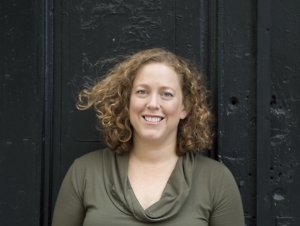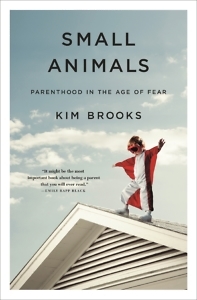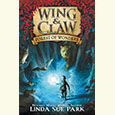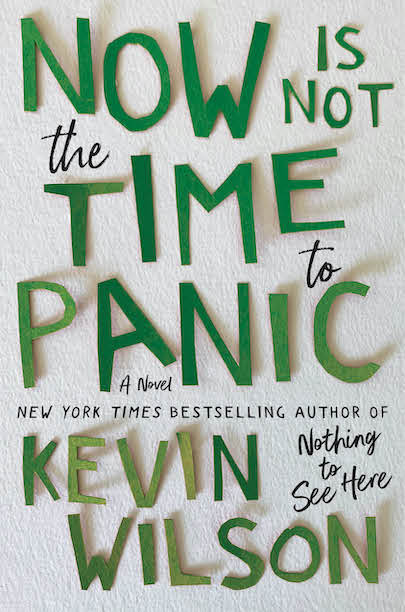The Never-Ending Risk-Benefit Analysis
Kim Brooks heads to Tennessee to discuss parenthood in the age of fear
In March of 2011, Kim Brooks made a quick decision that upended her life: she left her four-year-old son in the car, buckled in his car seat with the windows cracked on a cool day, while she ran into Target for under ten minutes. (Her mission: a pair of headphones he could wear on a long flight later that day.) “I did what it sometimes seemed I’d been doing every minute of the day since having children, a never-ending, risk-benefit analysis,” she writes.

This time it didn’t end well: a stranger, someone she would never meet, saw an unattended child in the car and called the police. The legal and emotional fallout of that experience led Brooks to question the source of her own parenting mores—and to examine some of the beliefs and assumptions that govern the care of children today. The result is Small Animals, a valuable and illuminating report swaddled in a gripping personal narrative. It’s a conversation-starter for difficult conversations, a book that should be required reading for contemporary parents.
At the anxiously beating heart of Brooks’s story is fear—that of the stranger who took a phone video of Brooks’s son in the car; that of Brooks herself, always straining to do right by her children; that of a culture that whispers to every one of us that our children are one toe-tip away from grave danger at all times. You hardly need to be a parent to be on nodding terms with the phenomenon.
How did we get here? “The fear emerges,” Brooks writes, “from a particular set of historical and cultural changes, each impacting the lives of families in unique but often mutually reinforcing ways.”
First she traces the origins of this fear-based mindset, identifying its sources as media sensationalism around child abductions, a rising tide of information, and a climate of competitive parenting—the “charged and often stressful jockeying for status and approval.” On playgrounds and in backyards, in the alley behind Brooks’s townhome in Chicago where children gather, this mindset manifests as clusters of parents standing guard, keeping their eyes on the children. No one wants to be the “lazy” mom or dad who doesn’t prioritize safety. Among our many fears, fear of being shamed by our peers sometimes looms largest. Brooks cites research suggesting that “risk assessment and fear of moral judgment are intertwined.”
 Brooks never condescends; rather, she recognizes herself as unhappily active in a game nobody wants to admit they’re playing: “Even before I became a parent, my notions of what it meant to be a parent, that this was a fundamentally anxious endeavor that required planning and control at every level, were so deeply ingrained, so omnipresent and unexamined in those around me, I couldn’t have begun to question the soundness of my own enthusiasm and competitiveness as I entered the fray.”
Brooks never condescends; rather, she recognizes herself as unhappily active in a game nobody wants to admit they’re playing: “Even before I became a parent, my notions of what it meant to be a parent, that this was a fundamentally anxious endeavor that required planning and control at every level, were so deeply ingrained, so omnipresent and unexamined in those around me, I couldn’t have begun to question the soundness of my own enthusiasm and competitiveness as I entered the fray.”
And as she synthesizes the voices of fellow parents and experts, Brooks finds that what can be proven about risks vs. benefits matters little when it comes to our children. Putting your child in a car and driving 70 mph on the interstate is, by any analysis, a greater risk to her life than letting her walk four blocks to a neighborhood park where she can play unattended for half an hour. But which do you do without question, and which do you forbid? A fearful imagination, Brooks writes, is more powerful than any data.
Brooks wisely acknowledges her own position of privilege. Her experience with the legal system in Virginia, where the incident in the Target parking lot took place, certainly bears this out: with the help of a lawyer, she got off with community service and parenting classes, and the charge was dismissed. Another mother she speaks with was not so fortunate.
Brooks digs deeper still. She considers what law enforcement’s evolving definition of child safety and neglect suggests about our attitudes toward women and mothers in general, and she examines how fear-based policies specifically impact parents of less means. “It’s one thing to insist children can never be unsupervised” to a mother of means, she writes. “It is quite another to say it to a single mother, a poor mother, a mother who struggles to pay for housing, health insurance, food, and clothing, much less quality childcare.”
Brooks isn’t sure what to do with her newfound perspective on parenting in the age of fear. There’s “the rational, critical part of my brain and the fearful, superstitious parent part,” she writes, wondering if it would ever “be possible to merge the two.” One person’s knowledge has limited power. And that’s why this book is needed: “It’s one thing to notice the emperor has no clothes. It’s an entirely different thing to be the only one to say so.”

Susannah Felts is a writer, editor, and educator in Nashville, as well as co-founder of The Porch Writers’ Collective, a nonprofit literary center. She is the author of This Will Go Down On Your Permanent Record, a novel, and numerous journal and magazine articles.


